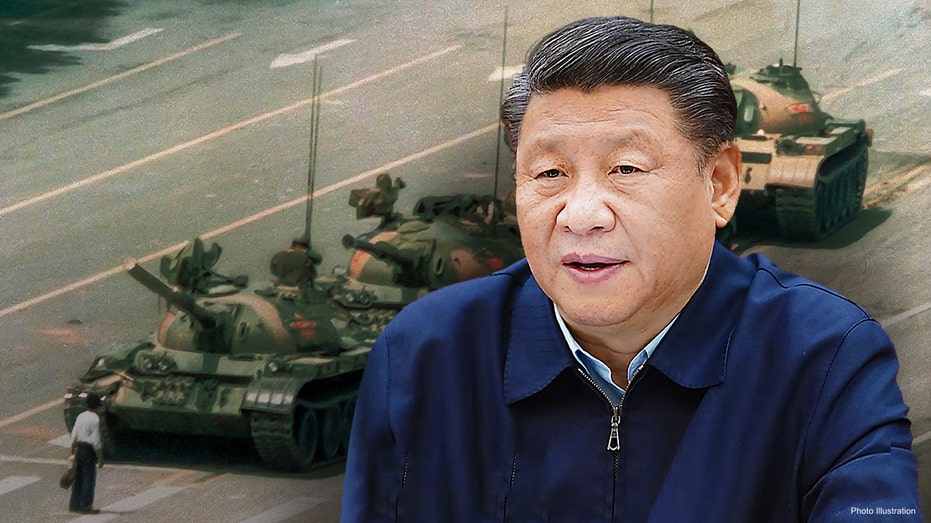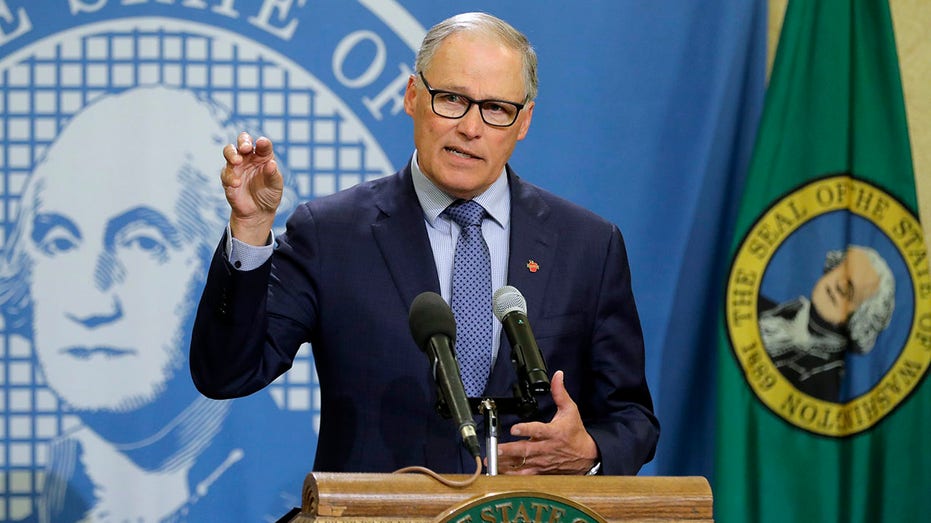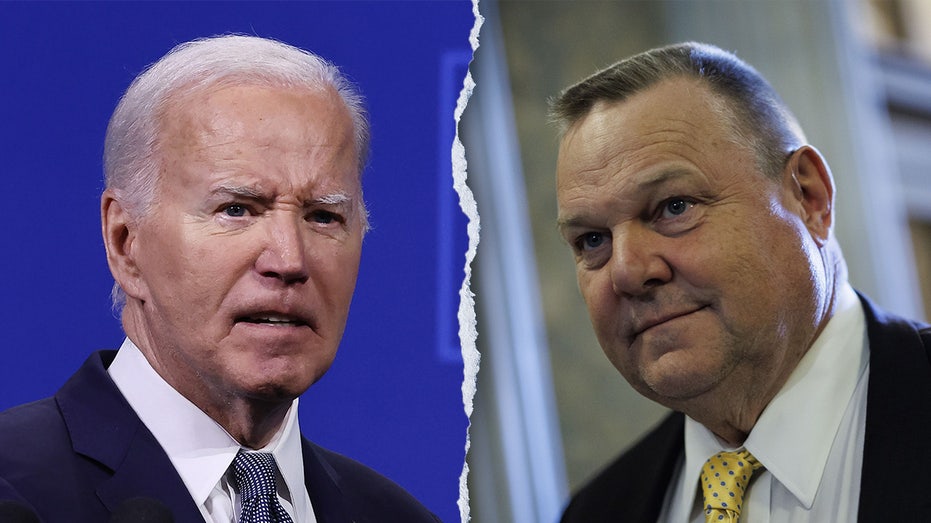US-China policy failures highlighted on Tiananmen Square massacre anniversary
The naïve U.S. desire to try and shape China's emergence on the global scene may have ultimately proven its undoing as Beijing failed to liberalize its society as various administrations had hoped.

The anniversary of the 1989 Tiananmen Square massacre once again brings scrutiny about China’s treatment of dissent and the state of U.S. relations with Beijing, which some argue has grown lax and permissive as human rights violations continue within its borders.
"Thirty-five years ago, the Chinese Communist Party killed hundreds — possibly even thousands — of innocent, unarmed civilians peacefully calling for democratic reform," House Foreign Affairs Committee Chairman Rep. Michael McCaul, R-Texas, told Fox News Digital.
"We cannot let the spirit of those murdered at Tiananmen Square die," McCaul said. "We cannot allow dictators to rewrite history. Today, we honor their memory and continue to condemn the horrifying human rights abuses committed by the CCP."
The 1989 student protests lasted for a week and culminated in a severe government crackdown that killed many, with the full number still unclear. The West widely condemned the crackdown, and Hong Kong served as a sanctuary for those wanted by Chinese authorities in the aftermath.
35 YEARS AFTER CHINA'S TIANANMEN SQUARE MASSACRE: WHY WE MUST NEVER FORGET
China’s stunning rehabilitation took only a few years. By 1992, most of the country’s foreign relations had been restored and then-leader Deng Xiaoping used his remaining influence to launch economic reforms that kick-started a strong era of growth.
"After the Tiananmen Square massacre, the administration of George H.W. Bush tried to reestablish contact and friendly relations with the Chinese regime," Gordon Chang, a Gatestone Institute senior fellow and China expert, told Fox News Digital.
"That was a grave mistake for a number of reasons, but we have seen the engagement policy since then, and only during the Trump administration has the United States had a different, and, I would think, better approach," Chang said.
"Trump put America's interests first instead of putting the interests of the communist regime ahead of those of America, but, unfortunately, right now we've gone back to the Pre-Trump China policy, which is not working for the United States, and it's not working for the free world," he added.
Every year, though, the Tiananmen Square massacre is immortalized by the famous photo of a man with bags in hand – identity still unknown - refusing to get out of the way of tanks that tried to move through the square.
COMMUNITIES ABROAD COMMEMORATE TIANANMEN SQUARE VICTIMS AFTER HONG KONG CRACKDOWN QUASHES CEREMONIES
The Chinese government has never apologized for the massacre and continues to reject any calls for an investigation into the heavy-handed overreaction – and in that time, China has further enmeshed itself in global politics.
"It’s been more than three decades since the CCP massacred activists at Tiananmen Square, and it’s clear the status quo of pouring American dollars into China has backfired," Rep. Michael Waltz, R-Fla., told Fox News Digital.
"China has not become more democratic," Waltz said. "Rather, U.S. engagement has literally funded a more capable, more repressive adversary that seeks to defeat the West."
"Under Chairman Xi’s rule, the CCP’s horrific behavior has worsened with its ongoing genocide against the Uyghurs, provocations in the South China Sea, unleashing COVID, and comprehensive espionage campaign against the U.S. It’s past time to hold them accountable," he added.
The evolution of China’s domestic policies and international relations has reshaped global norms, which has only helped China in pursuit of its goals, according to Matt McInnis, senior fellow for the Institute for the Study of War, explained.
"[The U.S.] spent much of the 1990s and 2000s into early 2010s still seeing China as a potential rival, but, ultimately, a state that we can work with, and through economic integration we would hope to liberalize or normalize China’s foreign and domestic policies," McInnis told Fox News Digital.
"I think that has more significantly changed since Xi Jinping became president in 2013," he argued. "That began a slow recognition amongst most American leaders and foreign policy elite that China is not willing to liberalize, and it is intent on achieving long-term aims of becoming the most dominant power by at least 2049, if not sooner."
"That has been a difficult process for American foreign policy leaders and policymakers because it changes many of the paradigms that we had developed after the Cold War and despite the Tiananmen Square massacre in 1989."
McInnis vividly recalled the tremendous shock among the American public following Tiananmen Square, as many Americans had to reconcile a newly-aligned foreign ally – one that President Nixon had fought to establish – perform such a horrific massacre.
"There was a lot of, frankly, anger about that because of what had happened, and the attempt by the then-Bush Sr. administration to normalize the relationship with China again," McInnis recalled.
"Certainly, it never went back to the way it was in the 1980s, but at the same time, there was still this expectation that China was too important. We had to find a way to work [with them], and we developed ultimately, probably, a self-defeating policy of essentially a bear hug with China that we would try to get as close as we could to help shape China’s rise," he said.
"I think it took awhile before that policy settled in after 1989, but still in many ways did not fundamentally change from the way it was before 1989," he added.
James Anderson, the deputy undersecretary of defense during the Trump administration, told Fox News Digital about the shock and upset Americans felt after the massacre, calling the event "tragic and disturbing" for the American public – but he lamented that America seems to have forgotten much of that impact, perhaps by design.
"What happened [was] this idea of ‘constructive engagement,’ which was a Clinton administration term, really, with roots in the 1990s, despite what happened in Tiananmen Square," Anderson said.
"The underlying belief was actually three kinds of core options … whereby the United States would engage [China] politically, diplomatically and economically with China, and the three assumptions were that this would enable China to grow and to reform its economy further," Anderson explained.
"The second assumption was this continued growth of the Chinese economy and reform that would lead to political liberalization," he continued. "And then the third assumption was that the internet … would potentially lead to greater openness in China – freedom of ideas and all the rest."
TIANANMEN SQUARE MASSACRE MASTERMIND KNOWN AS THE 'BUTCHER OF BEIJING' DIES
"The problem is that all three of these assumptions have proven to be faulty and, frankly, flat out wrong," he stressed. "China has continued to grow economically, but its reform efforts have stalled. It’s very much socialism with Chinese characteristics."
The Tiananmen Square massacre lingers in the minds of policymakers as they face another Chinese human rights tragedy with the treatment of the Uyghur population, which includes camps that Chinese Communist Party (CCP) officials claim are for "education" but others, including the U.S. State Department, have alleged may constitute a genocide.
The U.S. Mission to the United Nations in 2022 released a press statement from Secretary of State Antony Blinken that cited a U.N. report on China’s potential human rights abuses, saying the report "deepens and reaffirms our grave concern regarding the ongoing genocide and crimes against humanity that PRC government authorities are perpetrating against Uyghurs."
Anderson noted that the U.S. has repeatedly tried to highlight concerns over China’s alleged human rights abuses but admitted that such concerns "have always been ultimately overshaded by a belief that engaging the Chinese would be good for them [and] good for us."
CLICK HERE FOR MORE FOX NEWS OPINION
"It’s only recently that … those ideas have become discredited," he added. "The reason why it’s important to truly understand the nature of the CCP is it’s very revealing how they treat their own people and their own minorities, and … that’s important because, historically, how nations treat their own citizens often presages how they will treat their neighbors, and we have seen that play out as China has become stronger, richer and more aggressive in the South China Sea and beyond."



